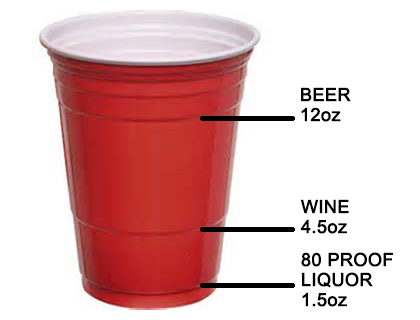KNOW WHAT'S IN YOUR CUP

- 12 ounces of beer
- 4-5 ounces of wine
- 1.5 ounces of 80 proof hard liquor
National Institute on Alcohol Abuse and Alcoholism – College drinking (2007, July 12). Tips for cutting down on drinking.

ALCOHOL FACTS
Blood / Breath Alcohol Concentration (BAC) is the amount of alcohol found in the bloodstream or on one’s breath. BAC can be measured by breath, blood, or urine tests.
The number of drinks consumed by any individual is a poor measure of intoxication because of variation in the physiology and individual alcohol tolerance.
BAC can be impacted by the following effects:
- Biological assigned sex: Typically, women have less dehydrogenase, a liver enzyme that breaks down alcohol. Additionally, women have lower total body water content than men. Also, a woman’s ability to metabolize alcohol can be affected by her menstrual cycle due to higher levels of estrogen. All of this contributes to higher concentrations of alcohol in a woman’s system even if she is drinking the same amount of alcohol as a male counterpart.
- Emotional state: Alcohol impacts the levels of serotonin and other neurotransmitters in the brain, which can cause an increase in feelings of anxiety and depression.
- Energy Drinks: Combining alcohol with energy drinks may give people the “sensation” of reduced alcohol effects but it does not alter BAC (may not feel as intoxicated as you really are).
- Amount of food consumed: Having food in your stomach can slow down the absorption of alcohol. It is recommended that individuals eat balanced meals (protein, fat and carbs) to fuel the body and slow down alcohol absorption.
- Any additional drugs or medication taken, including over the counter medication. Follow guidelines and warnings on labels and prescriptions related to alcohol consumption.
A person’s BAC can continue to rise even while he or she is passed out. Even after a person stops drinking, alcohol in the stomach and intestine continues to enter the bloodstream and circulate throughout the body.
Time is the only factor to lower one’s BAC.
Coffee, cold showers, and eating food after alcohol has been absorbed into the blood system does not change a person’s BAC.
ALCOHOL POISONING: KNOW WHAT TO DO
Alcohol poisoning is a medical emergency. Get to know the signs and what you can do in the event that you encounter someone experiencing alcohol poisoning.
Source: The National Institute for Alcohol Abuse and Alcoholism, www.collegedrinkingprevention.gov
Alcohol depresses nerves in the brain that control involuntary actions such as breathing and the gag reflex, which prevents choking.
Vomiting is another common symptom of excessive drinking and is our body’s way of telling us to stop consumption. Choking caused by vomit can also lead to an increased risk of death by asphyxiation in a person who has passed out due to alcohol consumption.
A person’s blood alcohol concentration (BAC) can continue to rise even while they are passed out or sleeping. Even after alcohol consumption stops, alcohol in the body continues to enter the bloodstream and circulate throughout the body. An individual who appears to be “sleeping it off” may be in danger.
If a person has ANY of the following, seek medical attention immediately:
- Individual is unresponsive
- Vomiting while passed out or sleeping
- Shallow / irregular breathing (10 seconds or more between breaths)
- Pale / blue lips or fingertips, skin is cold or clammy
- Eyes roll back in head
- Unable to stand or walk without assistance
Don’t assume a person will sleep it off! People may pass out before all the alcohol (or other substances) reach the brain (our control center). The heart and lungs may begin to slow to the point of stopping.
Never use cold water or caffeine to attempt to wake the individual up. Do not give them food, water, or try to get them to stand up and walk around.
Stay with the person. Turn and keep them on their side to prevent choking on vomit.
Call 911 immediately if the person is:
- Unresponsive
- Vomiting while passed out or sleeping
- Shallow / irregular breathing (10 seconds or more between breaths)
- Pale / blue lips or fingertips, skin is cold or clammy
- Eyes roll back in head
- Unable to stand or walk without assistance
If you see someone experiencing a medical emergency, do not wait to call for help. You can reach out to a number of resources:
- 911
- A Resident Assistant (RA) – if in a residence hall
- Emergency Personnel
- UGA Police Department
When in doubt always ask for help!

